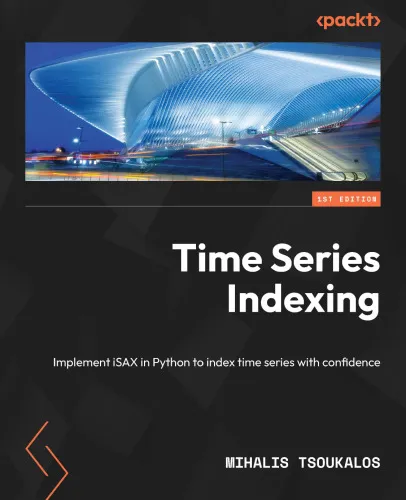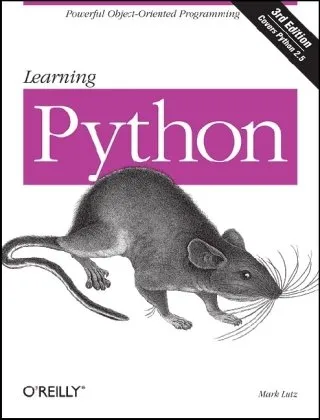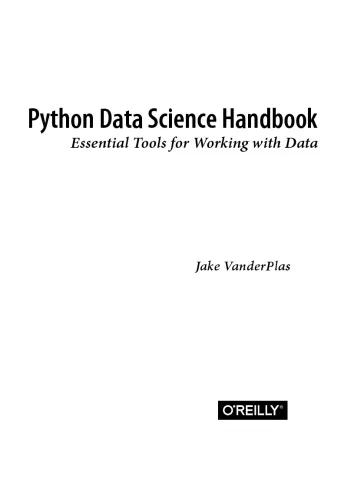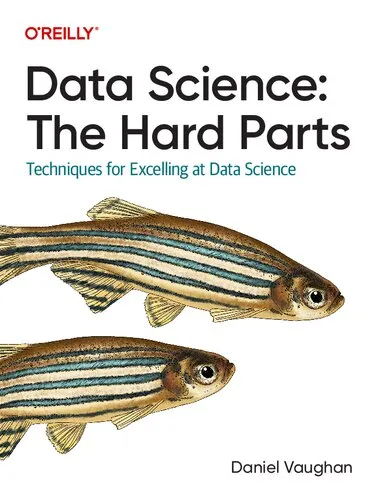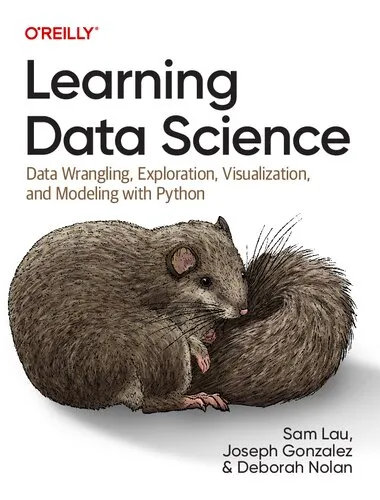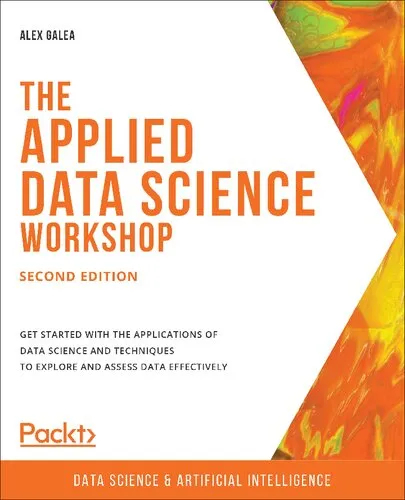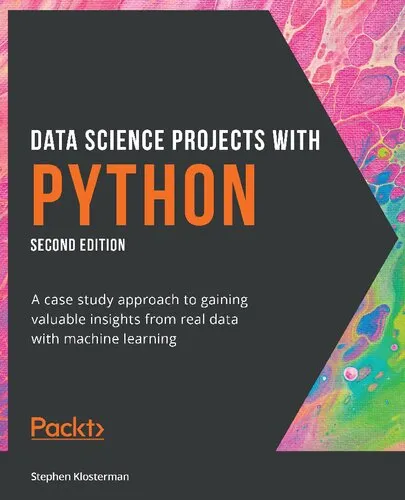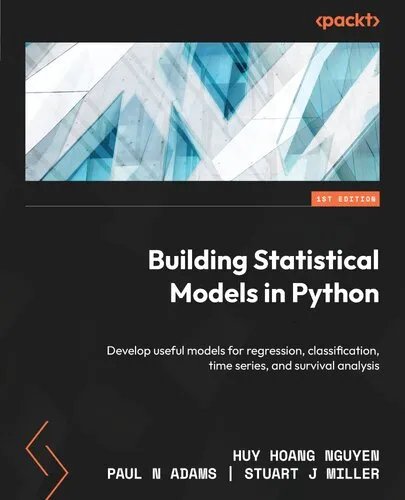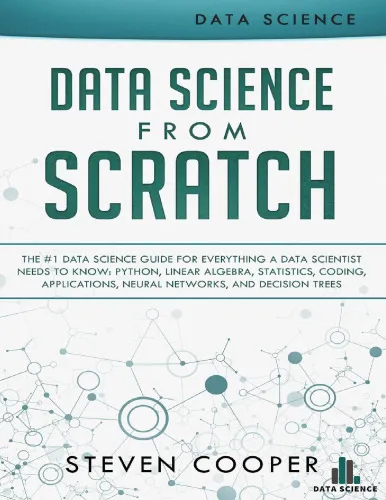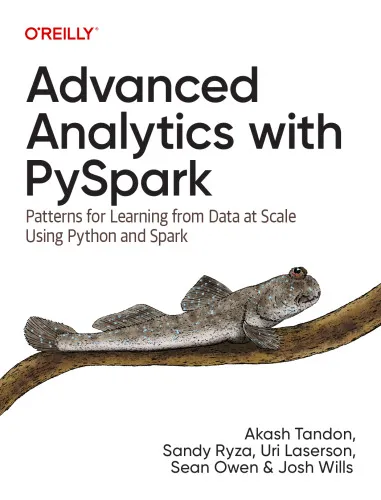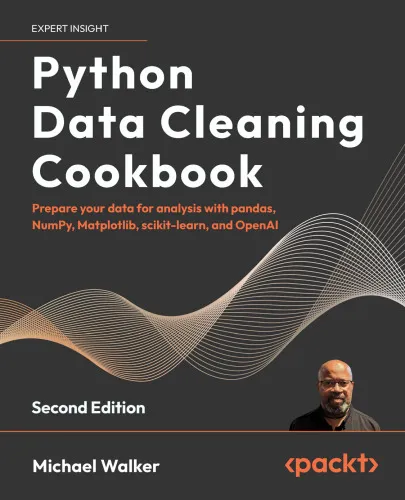Time Series Indexing: Implement iSAX in Python to index time series with confidence
4.0
بر اساس نظر کاربران

شما میتونید سوالاتتون در باره کتاب رو از هوش مصنوعیش بعد از ورود بپرسید
هر دانلود یا پرسش از هوش مصنوعی 2 امتیاز لازم دارد، برای بدست آوردن امتیاز رایگان، به صفحه ی راهنمای امتیازات سر بزنید و یک سری کار ارزشمند انجام بدینکتاب های مرتبط:
خلاصه تحلیلی کتاب
کتاب Time Series Indexing: Implement iSAX in Python to index time series with confidence اثری تخصصی و در عین حال روان است که به صورت گامبهگام نحوه پیادهسازی الگوریتم iSAX را در محیط Python تشریح میکند. نویسنده، با رویکردی عملی، به خواننده کمک میکند تا نهتنها مفاهیم تئوریک شاخصگذاری دادههای سری زمانی را درک کند، بلکه با استفاده از مثالهای کدنویسی، مهارت پیادهسازی این تکنیک را نیز کسب نماید.
این کتاب برای پژوهشگران حوزه دادهکاوی، مهندسان نرمافزار و دانشجویان علم داده که به دنبال راهکارهایی برای مدیریت و جستجوی سریع در حجم انبوه دادههای سری زمانی هستند، منبعی ارزشمند و قابل اعتماد محسوب میشود. نویسنده به جای استفاده از اصطلاحات پیچیده غیرضروری، زبان فنی را با توضیحات شفاف ترکیب کرده و سبب میشود حتی کاربران میانی Python بتوانند محتوای پیشرفته کتاب را دنبال کنند.
ساختار کتاب به گونهای طراحی شده است که ابتدا خواننده را با مفاهیم پایهای سریهای زمانی و الگوریتمهای شاخصگذاری آشنا میکند، سپس به معرفی دقیق iSAX و کاربردهای آن در سناریوهای واقعی میپردازد. در مراحل پایانی، پیادهسازی گامبهگام این الگوریتم در Python با تمرکز بر بهترینرویّهها و بهینهسازی عملکرد سیستم ارائه شده است.
نکات کلیدی و کاربردی
از بزرگترین ارزشهای این کتاب، ارائه نکات عملی و دستورالعملهای شفاف در ارتباط با استفاده از iSAX در محیط Python است. نویسنده نه تنها بهصورت دقیق الگوریتم را توضیح میدهد، بلکه به مشکلات رایج در کار با دادههای سری زمانی و شیوههای حل آنها اشاره میکند.
کتاب نشان میدهد که چگونه با استفاده از iSAX میتوان ابعاد دادهها را کاهش داده و سرعت جستجو و پردازش را به شکل چشمگیری افزایش داد. این رویکرد برای کاربردهایی نظیر تحلیل مالی، تشخیص ناهنجاریها و پایش عملکرد سیستمها اهمیت فراوانی دارد.
یکی از نکات کلیدی دیگر، تشریح چگونگی انتخاب پارامترهای مناسب برای iSAX و تنظیم ساختار درختی شاخصگذار است تا بیشترین بازده حاصل شود. همچنین بخشهایی به بررسی کارایی الگوریتم و مقایسه آن با سایر تکنیکهای شاخصگذاری پرداختهاند.
نقلقولهای ماندگار
در طول مطالعه کتاب، جملاتی وجود دارد که به دلیل عمق و روشنی، تأثیری ماندگار بر خواننده میگذارد. این نقلقولها چکیدهای از فلسفه نویسنده در برخورد با داده و الگوریتم هستند.
برای فهم یک الگوریتم، باید آن را اجرا کنید، نه فقط بخوانید. نامشخص
شاخصگذاری مؤثر، زمان جستجو را به لحظه تبدیل میکند. نامشخص
چرا این کتاب اهمیت دارد
در دنیای امروز که حجم دادههای سری زمانی با سرعت شگفتانگیزی افزایش مییابد، توانایی شاخصگذاری مؤثر و سریع ضروری است. کتاب Time Series Indexing: Implement iSAX in Python to index time series with confidence خواننده را مجهز میکند تا در مواجهه با چالش ذخیرهسازی و بازیابی داده، تصمیمات مبتنی بر دانش و ابزارهای آزموده بگیرد.
اهمیت این کتاب در آن است که تکنیک iSAX را از سطح نظریه به حوزه عمل منتقل میکند و مسیر اجرای آن در پروژههای واقعی را هموار میسازد. با توجه به فراگیر شدن Python در حوزه علم داده، این کتاب میتواند شکاف میان تئوری و پیادهسازی را برای پژوهشگران و متخصصان کاهش دهد.
با وجود منابع نامشخص یا پراکنده در اینترنت، این اثر یک منبع منسجم و معتبر برای یادگیری شاخصگذاری دادههای سری زمانی است که بهویژه برای کسانی که به دنبال نتایج عملی هستند، توصیه میشود.
Analytical Summary
In “Time Series Indexing: Implement iSAX in Python to index time series with confidence,” Mihalis Tsoukalos offers an authoritative exploration of a powerful and scalable approach to handling time series data. Written for data scientists, engineers, and researchers, this book demystifies the iSAX (Indexable Symbolic Aggregate approXimation) representation in the Python programming language, giving readers both theoretical understanding and hands-on implementation skills.
Time series data is ubiquitous in modern analytics, arising in domains from finance, IoT sensor networks, and environmental monitoring to biomedical research and cybersecurity. Traditional indexing methods often fail to balance accuracy, scalability, and computational efficiency when faced with large volumes of time series datasets. The iSAX algorithm fills this gap by providing symbolic approximations that enable fast indexing and search capabilities without losing critical structural patterns in the data.
This book blends academic rigor with practical guidance. You will encounter comprehensive discussions on the mathematics behind symbolic aggregation, the constraints of high-dimensional data, and the trade-offs between resolution and performance. Each chapter integrates Python code samples that guide you step-by-step from raw time series input to an optimized index ready for data mining, anomaly detection, or similarity search tasks.
Key Takeaways
Readers will leave with a robust understanding of how to implement and leverage the iSAX algorithm in Python, ensuring their time series analysis workflows are both scalable and precise.
You will gain a grasp of symbolic representations and why they matter for indexing large datasets.
Understand step-by-step procedures for preparing, segmenting, and approximating time series data.
Learn to fine-tune iSAX word sizes and cardinalities for performance optimization.
Discover how to evaluate the accuracy and speed of your indexing approach using empirical testing.
Recognize practical applications across diverse domains where time series indexing leads to tangible benefits.
Memorable Quotes
“Indexing time series efficiently is not a luxury; it is a necessity in the era of big data.”Unknown
“The iSAX representation compresses complexity into clarity, enabling speed without sacrificing insight.”Unknown
“Python offers the flexibility and accessibility needed to bring advanced indexing algorithms to the hands of practitioners.”Unknown
Why This Book Matters
This work fills a critical knowledge gap for professionals facing the challenge of managing and searching vast time series datasets quickly and accurately.
Whether your data comes from stock market feeds, industrial sensors, climate models, or server logs, inefficient indexing can severely limit analytic potential. This book equips you with cutting-edge techniques and accessible Python code so you can integrate iSAX into your projects and achieve lightning-fast searches on massive datasets.
The author’s focus on precise, reproducible methods reflects the level of care necessary when dealing with complex, high-dimensional data. By uniting algorithmic theory with practical coding advice, Mihalis Tsoukalos makes iSAX accessible to both academics and industry professionals.
Information about potential awards or formal recognitions for the book is unavailable, as no reliable public source currently confirms such details.
Inspiring Conclusion
“Time Series Indexing: Implement iSAX in Python to index time series with confidence” serves as both a technical manual and a trusted companion for serious learners navigating the world of time series analysis.
By mastering the principles and practical steps outlined in this book, you will be able to construct efficient indexing solutions that extract meaningful insights from high-volume data sources. The careful blend of theory, examples, and Python code empowers you to broaden your analytical toolkit.
If you are ready to enhance your skills, deepen your understanding, and streamline your workflow, take the next step: read the book, engage with the methods, share your applications, and discuss your findings with colleagues and the broader data science community. The journey into effective time series indexing begins here.
دانلود رایگان مستقیم
شما میتونید سوالاتتون در باره کتاب رو از هوش مصنوعیش بعد از ورود بپرسید
دسترسی به کتابها از طریق پلتفرمهای قانونی و کتابخانههای عمومی نه تنها از حقوق نویسندگان و ناشران حمایت میکند، بلکه به پایداری فرهنگ کتابخوانی نیز کمک میرساند. پیش از دانلود، لحظهای به بررسی این گزینهها فکر کنید.
این کتاب رو در پلتفرم های دیگه ببینید
WorldCat به شما کمک میکنه تا کتاب ها رو در کتابخانه های سراسر دنیا پیدا کنید
امتیازها، نظرات تخصصی و صحبت ها درباره کتاب را در Goodreads ببینید
کتابهای کمیاب یا دست دوم را در AbeBooks پیدا کنید و بخرید
1173
بازدید4.0
امتیاز0
نظر98%
رضایتنظرات:
4.0
بر اساس 0 نظر کاربران
Questions & Answers
Ask questions about this book or help others by answering
No questions yet. Be the first to ask!
